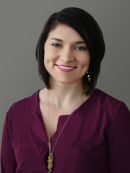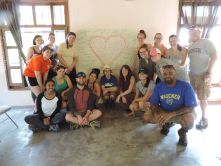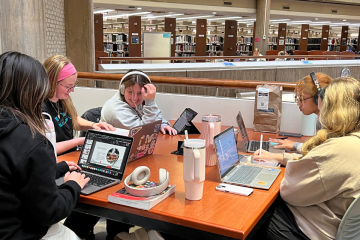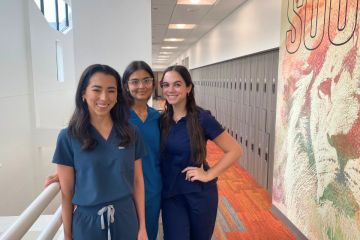$1.3 Million Grant Awarded to Widener Human Sexuality PhD Student

When Louisiana native Arial Moore began her search for a human sexuality graduate program, she did not imagine ending up at Widener University, over 1,300 miles away. However, Moore was immediately drawn to Widener’s Human Sexuality (MEd) program.
Moore received her Master’s in Human Sexuality Education from Widener in 2016 and is currently pursuing her PhD in Human Sexuality Studies from the Center for Human Sexuality Studies. She is currently doing all studies remotely, but when she began the PhD program before the pandemic, Widener’s flexibility allowed her to live in Louisiana and travel to Chester monthly for classes. That meant she could continue working full time at the Louisiana nonprofit she founded, the Safe Havynn Education Center (SHEC).
The schedule allowed her to grow SHEC, including through a major achievement this year when she secured a $1.3 million grant from the U.S. Department of Health and Human Services to continue the programming she established.
“I don’t know how Widener came up, but I am so thankful that it did,” says Moore. “When I went for my first interview, there was so much energy and positivity but also a focus on challenging yourself and being introspective.”
Throughout her studies at Widener, Moore has had the opportunity to work alongside established faculty, like Associate Professor Justin Sitron, director of the Center for Human Sexuality Studies, who have helped her along her journey as a doctorate student.
“Our graduate program here at Widener prepares students to create and deliver sexuality education that is culturally responsive and inclusive,” said Sitron. “Arial is getting an incredible opportunity to put into practice what she learned here at Widener for the benefit of young Louisianans.”
Moore’s professional success speaks to the caliber of student attracted to Widener’s center, which houses one of the only doctoral programs in human sexuality studies at a fully accredited university in the United States. Like Moore, students are positioned for leadership.
“I try to minimize the risk by educating and empowering students, while also showing the benefits of being a sexual person and being in sexual relationships,” Moore said of her nonprofit. “These students will eventually become adults in committed relationships. We have to be consciously aware of what we’re teaching them because they will take that into their long-term relationships.”
Through the grant she secured, SHEC now offers a sexual risk avoidance program which focuses on a positive youth development approach, to outline protective factors necessary for youth to avoid jeopardizing both their health and their future goals. Louisiana is consistently ranked among top states for teen pregnancy, STIs, and HIV, making sexual education imperative for teens and young people.
“Shame and guilt, while common within sex education down here in the south, is not the best learning strategy. That type of environment is not conducive to healthy decision-making skills,” Moore said.
Set up as a weekend camp, the program features lessons from two program educators and fosters the basic need for connectedness among teens. By the year 2023, the camp will reach an estimated 1,500 participants.
“There weren’t many opportunities down here, so I had to create my own,” Moore said.
“She is so dedicated to seeing her dreams come true and her work to develop a program is especially important, given that she’s doing it in a part of the country where sexuality education is constantly being marginalized,” said Sitron.
While Moore is currently working remotely on her dissertation, focused on chronic pain during sex and the influence it has on one’s self perception, she credits Widener’s flexible graduate degree to her success.
“Being able to fly up to Pennsylvania for weekend classes to meet with faculty and classmates gave me so much life,” said Moore. “With Covid-19 currently impacting in-person teaching, the students and faculty in Widener’s Human Sexuality programs make a huge effort to keep in touch with each other.”
Explore all Human Sexuality program offerings
This SHEC Camp was supported by Funding Opportunity Number HHS-2020-ACF-ACYF-SR-1849 from the Department of Health and Human Services, Administration for Children and Families. Its contents are solely the responsibility of Safe Havynn Education Center and do not necessarily represent the official views of the Department of Health and Human Services, Administration for Children and Families.





